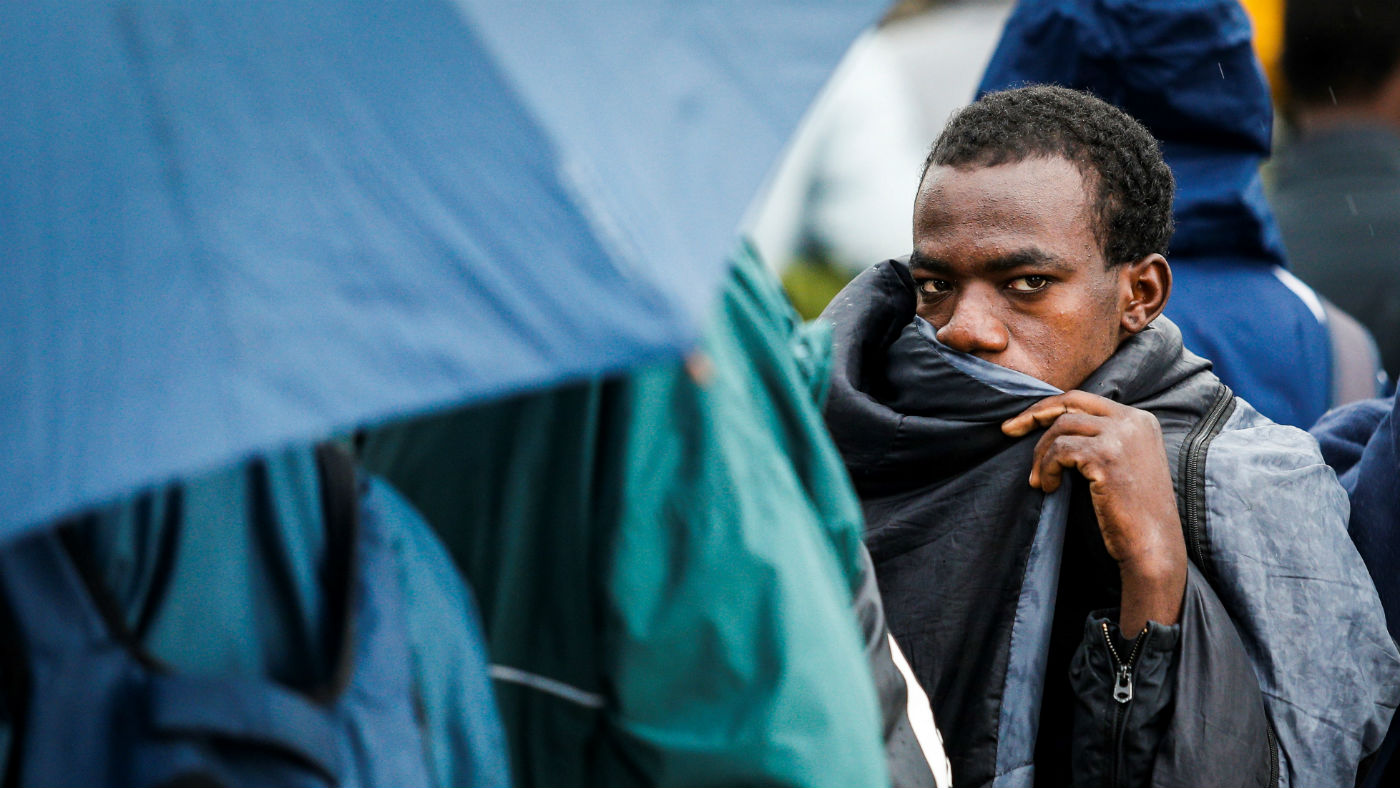EU unveils new migration plan amid free movement backlash
Fifty thousand refugees will be relocated over two years, even as Schengen rules are tightened

A free daily email with the biggest news stories of the day – and the best features from TheWeek.com
You are now subscribed
Your newsletter sign-up was successful
The EU has unveiled a two-year programme to bring 50,000 asylum seekers to Europe amid a growing backlash against both letting in new refugees from outside the bloc and freedom of movement within it.
Under the proposals, the European Commission has set aside €500m (£439m) to relocate refugees mostly from Libya, Egypt, Niger, Sudan, Chad and Ethiopia. It also wants to encourage private sponsorship schemes to help migrants avoid people smugglers and come to Europe legally.
European Commission Vice-President Federica Mogherini said the new plan was “about managing one of the most complex, structural phenomena of our times, not a temporary emergency”.
The Week
Escape your echo chamber. Get the facts behind the news, plus analysis from multiple perspectives.

Sign up for The Week's Free Newsletters
From our morning news briefing to a weekly Good News Newsletter, get the best of The Week delivered directly to your inbox.
From our morning news briefing to a weekly Good News Newsletter, get the best of The Week delivered directly to your inbox.
She dismissed accusations that the previous two-year programme - which ended yesterday - had failed, relocating less than a fifth of its planned 160,000 asylum seekers, and said EU migration policy is “starting to work”.
To deal with the 1.7 million refugees believed to have arrived since 2014, the EU has suspended the Dublin rule, under which refugees must apply for asylum in the first EU country they reach.
In an effort to relieve the burden on frontline countries such as Greece and Italy, which receive an disproportionate number of refugees, the EU has attempted to spread them throughout the bloc.
However, this has “soured” relations in the 28-country European Union, says the BBC, especially among eastern states. Poland, Hungary, Slovakia and the Czech Republic challenged the EU’s mandatory resettlement scheme at the European Court of Justice earlier this month.
A free daily email with the biggest news stories of the day – and the best features from TheWeek.com
Though the court rejected the challenge, Slovakian Economy Minister Peter Ziga told reporters: “The quota system does not work, so the court decision is, perhaps, irrelevant at the moment.”
The Daily Mail says it is “unclear how far Brussels may try to force eastern states to take refugees, many of whom themselves are reluctant to settle in the poorer, ex-Soviet bloc”.
Countries like Germany and Italy, which are housing large numbers of people, have said the easterners will jeopardise their western-funded EU subsidies if they go on refusing, but it is “a delicate balancing act as putting such a thorny issue to a vote, and possibly passing a migration reform despite opposition from several states, would cause even more bad blood”, says the Mail.
After German Chancellor Angela Merkel was punished by voters for her liberal refugee policy and amid growing fear of cross-border terrorism and the rise of the far-right across Europe, many leaders are looking for ways to limit the free movement between EU nations enshrined in the Schengen Agreement.
Germany, France, Austria, Denmark and Norway have reinstated ‘temporary’ border checks at certain points in response to migrant arrivals over the past six months. The Commission is now planning to extend the time limit for such temporary measures from six months to up to three years, the BBC reports, “but obliges member states to assess whether alternative measures are available”.
-
 Quiz of The Week: 14 – 20 February
Quiz of The Week: 14 – 20 FebruaryQuiz Have you been paying attention to The Week’s news?
-
 The Week Unwrapped: Do the Freemasons have too much sway in the police force?
The Week Unwrapped: Do the Freemasons have too much sway in the police force?Podcast Plus, what does the growing popularity of prediction markets mean for the future? And why are UK film and TV workers struggling?
-
 Properties of the week: pretty thatched cottages
Properties of the week: pretty thatched cottagesThe Week Recommends Featuring homes in West Sussex, Dorset and Suffolk
-
 Switzerland could vote to cap its population
Switzerland could vote to cap its populationUnder the Radar Swiss People’s Party proposes referendum on radical anti-immigration measure to limit residents to 10 million
-
 Epstein files topple law CEO, roil UK government
Epstein files topple law CEO, roil UK governmentSpeed Read Peter Mandelson, Britain’s former ambassador to the US, is caught up in the scandal
-
 Iran and US prepare to meet after skirmishes
Iran and US prepare to meet after skirmishesSpeed Read The incident comes amid heightened tensions in the Middle East
-
 Israel retrieves final hostage’s body from Gaza
Israel retrieves final hostage’s body from GazaSpeed Read The 24-year-old police officer was killed during the initial Hamas attack
-
 China’s Xi targets top general in growing purge
China’s Xi targets top general in growing purgeSpeed Read Zhang Youxia is being investigated over ‘grave violations’ of the law
-
 Panama and Canada are negotiating over a crucial copper mine
Panama and Canada are negotiating over a crucial copper mineIn the Spotlight Panama is set to make a final decision on the mine this summer
-
 Why Greenland’s natural resources are nearly impossible to mine
Why Greenland’s natural resources are nearly impossible to mineThe Explainer The country’s natural landscape makes the task extremely difficult
-
 Iran cuts internet as protests escalate
Iran cuts internet as protests escalateSpeed Reada Government buildings across the country have been set on fire